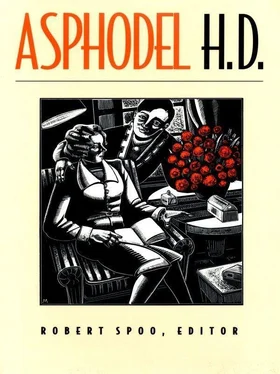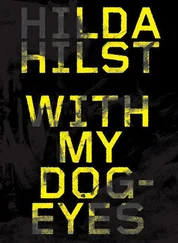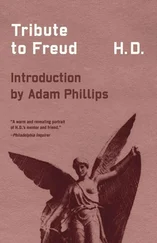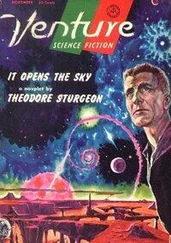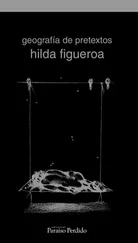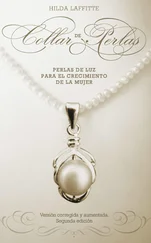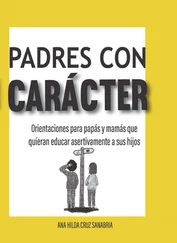Kisses held Morgan le Fay and she was Circe, Calypso to those kisses. She hadn’t strength against them. She was smothered and kisses recalled her to worlds away, pre-chasm. Would she go on with Darrington? She felt the kisses and she felt herself numbed, pollen dusted over with the kisses. Kisses brought back people, pictures, a honey-coloured Correggio nymph, the wide wings of the marble Nike. Wings of marble, islands of yellow stone, amber lights against rocks where the sea weed caught sunlight in its translucent surface. Ivory of small winged Erotes. Some Dionysus with a head band. The Nereids— “Do you remember those violets that you used to get me?”
He remembered the violets. He remembered everything. They remembered far and far back as if the years of terror (five was it?) never had been, had been some fulsome nightmare. Clear out of the years of terror the past rose, rose and cleft the years of terror like white lightning, a black storm cloud. The past, images of the past that had all the time been there, that had been buried under the stench of lava and molten metal, of guns and broken trenches, of earth mounds that were graves, the very substance of volcanic furious, the past, all the past had been there, all the time, white, in clear images, people, things, all the people, all the things and in some moment of rapport, holding her close, forgetting (both of them) all incidents of mere Louise, Merry or Cyril Vane, they conjured back the past, at one in a rapt intensity. The past rose and broke across the present, broke across the five years of dark disaster like some dancer that steps half-naked before a black drop-curtain. The past seemed safe and secure and the war was but a curtain that had fallen, “you will come, you will come back — Astraea?” He had conjured the past with a wave of his ebony stick, she had renewed the past with the white swansdown on her blue bed-jacket. Watchet blue, he called it. It was the colour of the blue eyes of Fayne Rabb.
Almost as if her thoughts had been his thoughts, though she had never spoken of her and the days of odd upheaval stood between them and this was the first time that he had been allowed to come to see her since — almost as if her thought that had risen like the half-naked dancer, gracious, sinuous, before the black drop-curtain, almost as if his thoughts had been her thoughts and as if the past was a very visible embodied image, Jerrold Darrington said, “yes, Phoebe is a pretty name for it. But one’s name’s a little awkward sometimes.” Darrington was looking at the very beautiful small doll with black hair that lay asleep in a wide basket. He said, “why don’t you name its other name, Fayne Rabb?”
“I don’t understand.” Hermione was facing Darrington. The room in the little Soho hotel that he had asked her to, was narrow with the window (top floor) overlooking a narrow side-street, overlooking the narrow debouching door of the Temple Theatre opposite. The room had grown narrow, it appeared, while she regarded it for at first the room containing Darrington had contained Italy, the slopes of Monte Solaro, anemones blooming pre-war Easter red and the blood red of the foot steps of Adonis that had been the atrocious wooden image that they had carried to the songs of pre-Hellenic old volcanic southern gypsy chanting. Christ had died and Christ was to be born again. Red anemones had flowered against the dim shabby paper of the narrow room and red anemones had fallen beneath her feet and had burned the very soles of her feet as she had stepped tentatively out of her bed cold mornings, mist cold early spring mornings, mornings over Soho like a brides veil for she was that in her renewed love of Jerrold. The narrow room with the stained sulphur coloured paper had been wide tunnel toward enchantment. At the end of the now narrow room, like vision projected by an enchanter’s magic, there had been the white cone of Vesuvius, the shale that had been the other side of Vesuvius, the side that sloped toward Pompeii, that was shale and scattered vineyard when seen from Herculaneum. The room with its narrow sordid proportion and its one narrow meagrely curtained window looking over the Soho back street had been wide and marvellous, a small concentrated space, like the tube of the Indian mystic, self-made from which, or at the end of which, he projects images of marvellous reality. The wall paper, Hermione now observed, was the mustiest of faded mustard yellow. The wall paper, Hermione saw it for the first time, was faded with a smudgy uneven spottiness that let show through the mustard like spots, the egg-stain like spots of singularly mal-formed tuberous yellow rose buds. The room became a room in Soho and the paper sordid as she saw it. The room shrank. “I don’t understand you at all. You go off on a vulgar escapade with Vane. You have this child—” “I thought we had talked all that out before. I thought it was arranged that it should — be — yours—” “How could it ever be mine? How could you ever be mine?” “Then why did you ask me to come back here? I might have — stayed — with—” She might have stayed with Vane. But she didn’t say it. She didn’t even think it really for she could never have stayed with Vane. The room shrank to its mean proportion. “What are we going to do anyway about it?”
“I told you I had Beryl arrange for the baby at that officers’ wives’ farm home for a few weeks—” “A few weeks — there’s always afterwards.”
Afterwards — afterwards— But why hadn’t he thought of that before? Was the strain too great — was Darrington some monster simply who was sent to persecute her? “I tell you I love Louise.” “Why didn’t you tell me that before I came back?” “I didn’t want to hurt you.” “Rot. You’d hurt me enough. You hurt me long ago. Why didn’t you say simply you were going to carry on with Louise—” Hermione heard the words, listened to herself speaking the words. “You go at once and register that child as Vane’s.”
Register the child. She had not thought of registering the child. There had already been preliminary taken for granted registration of the child — Mrs. Jerrold Darrington — baby, female — Phoebe Fayne. There had already been that. Why begin again? Why begin again? What was Darrington after? What was it all about? “Why hadn’t you seen this before — made it clear sooner?” Her words like white lead came from her with the force of something beyond Hermione. Hermione, worn past endurance, found words that she had never dreamed she had the strength to utter, forming somewhere white bullets, white searing lead, in the inside of her now cold head, and white bullets, white searing lead, projected outwards, out and out and out into a void where Darrington was, where Jerrold was. Someone was standing before her, someone who had nothing to do with Jerrold, some odd, uncanny and evil metamorphosis, evil and evil and bloated and dull as that very Cretan Minotaur. Minotaur sent to destroy the Athenian youth, to destroy beauty, Minotaur of wickedness. . Hermione no longer recognised this creature, herself one white frozen heat of flame repudiated some obscene creature who suggested obscene and evil things. “Register it? But that’s the merest legal formality. You said it was to be yours. I have your letters. You urged me on to have it. You let me go through with it though I was crippled with the last one and you let my friends (my bloated millionaire friends as you call them) see me through the added expense of the pneumonia and that dreadful set-back that meant that double nursing and impossible delicacies. You let me do that and you asked me, comfortably out of it, out of this world, to come back to Soho.”
Trampled flowers smell sweet. But there is a murderous ox foot, a cloven devil foot. Was it the war simply, that walked forward that would crush with devil horns and great brute devil forehead the tenderest of growths — Phoebe. Phoebe. Don’t say her name out loud, Hermione. Keep Phoebe Fayne out of it. It was you who were wrong drifting into this, tired and having no proper place to go to and it was better (far better) for Phoebe to have that officers’ wives’ home (what a cheat) in the country to go to for a few months until you could arrange, Beryl arranging it, Lady de Rothfeldt so kindly arranging it, officer’s wife. . pneumonia, very ill, husband only just returned but a cheat. A cheat. Husbands didn’t return like this with a bit of a uniform, his old tunic with a dash somewhere of a bit of ribbon as a smoking jacket. Jerrold was all in bits, trousers and jacket didn’t go together, Jerrold was all in bits. “I will look after you,” and “now register it as Vane’s,” didn’t go together. Jerrold was a Minotaur and there was only one thing now to do about it. Dodge him.
Читать дальше
